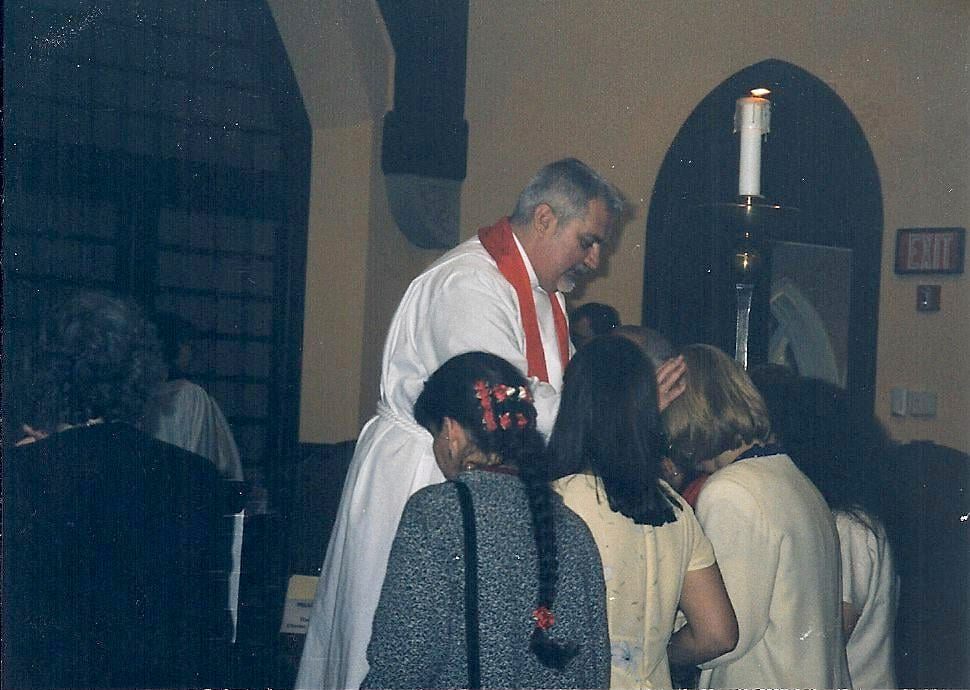Easter-tide, thank goodness, is a time of refreshment, rejuvenation, reorientation to life without holidays –a kind of opening of the way of normalcy. With any luck the weather will get better and soon spring sun will be the norm instead of a rare surprise. My tulips are beautiful on the rare occasion when there is enough sun for them to open up! This sense of return to normal is, I think, a major aspect of faith. It is easy enough to get whipped up by holiday hype, it is another thing to walk in love, to live the love that God asks us to live into. God asks us to understand in resurrection the idea that there is always renewal where there always is love in action. Resurrection is within us.
So it is that like Peter (Acts 2) and the other disciples, we are witnesses—[Acts 2:32] “This Jesus God raised up, and of that all of us are witnesses.” Yes, Peter means that he and the disciples were witnesses of the risen Jesus. But he also means that all of us, you and me, if we have faith, if we live into our covenant with God that we love our neighbors as ourselves—we are witnesses of resurrection.
In this, then, is our joy. In the leaves popping out on stems that remind us spring is coming and life is abundant and that there is always renewal. This is our joy in the smiles and hugs of loved ones, in the greeting by the nice lady at the supermarket, in the sweet sound of a familiar voice—in a hundred moments in each day is the proof that resurrection is within us, that God has raised us up too, that our joy is complete in the fullness of the path God has pointed out for us, the doorway into the dimension of love [Psalm 16:11].
In his first epistle [1 Peter 1:3-9] Peter speaks of hope, of that sense of trust that is the essence of faith that our inheritance of love is “imperishable, undefiled, and unfading.” It is this hope that is the catalyst for Easter joy, the sense of renewal, or if I may, of salvation, which is “more precious than gold” because like all of life it has been “tested by fire.” We know that resurrection is within us if we can keep our feet on the path into the dimension of love.
John’s Gospel account of the risen Jesus’ visit to the upper room [John 20:19-31] leads usually to the focus on Thomas, whose “doubt” is revealed not only as very human but also as very intimate. Whatever Thomas’ failings, however momentary, the love he shares with Jesus is so powerful that the risen Christ comes to him to say “Do not doubt but believe.”
Jesus ends the story with the pronouncement “Blessed are those who have not seen and yet have come to believe.”
Thus belief completes the circle of faith, the route back to love, the sure way to the dimension of love.
And so even we, the LGBTQ Thomases of our own time, we who are oppressed and outcast and reviled and distrusted even in our own “enlightened” day, we still believe, because we know the power of the love we have been given in our creation in God’s own image as inheritors of God’s love, as gatekeepers of God’s dimension of love. We know that resurrection is within us because we experience it every day, every moment, in the love we share. We all are witnesses. We all are blessed.
Second Sunday of Easter Year A 2023 RCL (Acts 2:14a, 22-32; Psalm 16; 1 Peter 1:3-9; John 20:19-31)
©2023 The Rev. Dr. Richard P. Smiraglia. All rights reserved.

